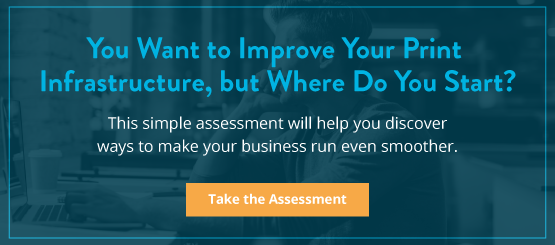If your business is looking to update its technology, chances are you're going to have a few questions. The questions could be about leasing options, or the capabilities of the technology, and above all, what this upgrade is going to cost you? With that said, we're here to see if we can help answer some of those burning questions.
1.) Who manages my lease after it has been executed by both parties?
A high percentage of leases that are executed are in-turn sold off to large 3rd party financial institutions, much like what happens with your mortgage on your home. This can make things difficult when it comes to getting answers to the questions on your account or even tracking down copies of your lease documents. The accountability, flexibility, and communication in handling your lease will vary depending on whose hands that lease resides in.
2.) Are there different types of leases and terms available?
Traditionally, many businesses opt for 60-month "fair market" lease because that is all that is offered to them. But businesses don’t always function or make transactional decisions based on a 60-month time frame. Let’s face it, a lot can happen in terms of technology in five years. The answers to these questions will help determine the best choice based on the length of your lease.
- What changes are likely to take place within the organization during the term of the lease?
- What factors could affect the ways in which your employees use the technology?
- What is your budget today and how might that change as we progress through this lease?
Keep in mind that the shorter the term, the higher your monthly payment will be. However, this may allow you to upgrade equipment on a more frequent schedule and stay on top of new and emerging technologies or scale your technology with the growth of your business.
There are generally two types of leases. Fair Market Value (FMV) leases are the most common. This is a lease rental with options at the end of the term to either buy, continue to lease, or return. FMV’s are attractive because they offer greater flexibility, lower payments, and are considered true operating leases. This type of lease is very similar to that of leasing a vehicle and allows you the option to buy the equipment after your lease is up or return it to the agency.
The other is the lease-to-own which generally cost more per month compared to FMV leases but you will own the equipment at the end of the lease term.
3.) What potential costs are incurred to my organization at the end of the lease agreement?
This is a great starting out question for when your organization begins the vetting process for selecting a vendor. The reality is most vendors use a 3rd party financial group to manage the lease. In this scenario the bank owns the equipment and not the vendor you are working with. At the end of the lease, there might very well be an out of state location that the bank will want the equipment shipped to at the clients’ expense. The freight charge can vary from a small fee to hundreds of dollars depending on insurance costs, weight, and distance you have to ship the equipment. However, extra fees such as this can be completed avoided if you choose an organization that holds the lease themselves. Asking questions like this upfront is a great way to gain better insight on what lies ahead for the term of your equipment lease.
4.) Are there any tax deductions available for our equipment lease?
The answer is yes. Equipment leases are often eligible for tax credits for the business. Depending on the type of lease, you may be able to deduct your payments as a business expense of Section 179 Qualified Financing. Check out our past blog about Section 179 Tax Deductions to learn more. Or visit the Section 179 website to learn more about qualifications.
5.) How soon will the technology I'm leasing become obsolete?
Everyone wants to stay up-to-date on the latest in technology trends and needs. This is another great question to ask the vendor you are talking with about beginning a lease. For example, there isn’t a hard timeline for manufacturers when they update product lines but a good rule of thumb is every 3 ½ years to 4 ½ years there are product refreshes. This, of course, can depend on many variables. We all know technology is ever evolving and with the ongoing cyber security risks, this is something you should keep in mind. Keeping your business protected and operating with prime efficiency should always be top of mind.
Knowing your Technology Leasing Options
You may have questions of your own when it comes to your organization and leasing. The answers to these questions will help lead you down a path to determining not only which type of lease but also which vendor is best for your business. If you would like to learn more about different options with leasing or about the process of updating your office technology, the experts at SumnerOne are here to help. Please reach out to one of our local offices and we would be more than happy to assist you on your quest for growing your business.
Originally published September 4, 2018, updated April 18, 2019
 FREE EBOOK DOWNLOAD
FREE EBOOK DOWNLOAD




